Editorial by Dr. Willie Ratcliff
As many of you know from experience, or have read before in these pages, the last decade has cut a deadly swath through Black prosperity and the viability of Black businesses in San Francisco. This is coupled with the flight of many of our neighbors, family members and friends out of the City. Yet we hang on, still determined to “make a way out of no way.” We remain, our children remain, and if we work hard enough, diligently enough, we can turn things around so that the next generation has a fighting chance.
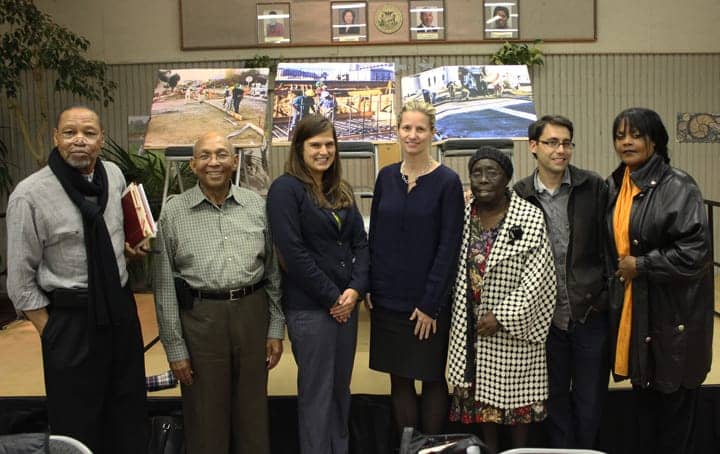
I was fortunate enough to be involved with early discussions between the Black Human Rights Leadership Council and the internationally renowned law firm of Latham & Watkins, LLP, to address these inequities. On the evening of Oct. 24, the Black Human Rights Leadership Council board, representatives of Latham & Watkins, and motivated community members gathered in the Alex Pitcher Community Room at Southeast Community Facility. We met to exchange our stories, to proffer solutions, and to mobilize residents, parents, business owners and organizations to support the BHRLC and Latham & Watkins in exploring the possibility of using legal remedies against the SFUSD on behalf of the entire community.
Dr. Espanola Jackson, founder of BHRLC, and Robert Woods, chair of the board, announced the partnership between Latham & Watkins’ pro bono division to investigate discriminatory practices against Blacks by the SFUSD. In her welcome, Dr. Jackson, whose family came to San Francisco from Texas in 1943, related how she herself was unfairly “tracked into Special Education classes” as a child as part of systemic racism in the district against Black students. She emphasized that Bayview Hunters Point residents must chart their own destiny through activism.
Dr. Jackson, whose family came to San Francisco from Texas in 1943, related how she herself was unfairly “tracked into Special Education classes” as a child as part of systemic racism in the district against Black students.
Mr. Woods introduced Andrea Hogan and Bobbi Dobush, attorneys representing Latham & Watkins to the gathering, after relating how and why this partnership came into being.
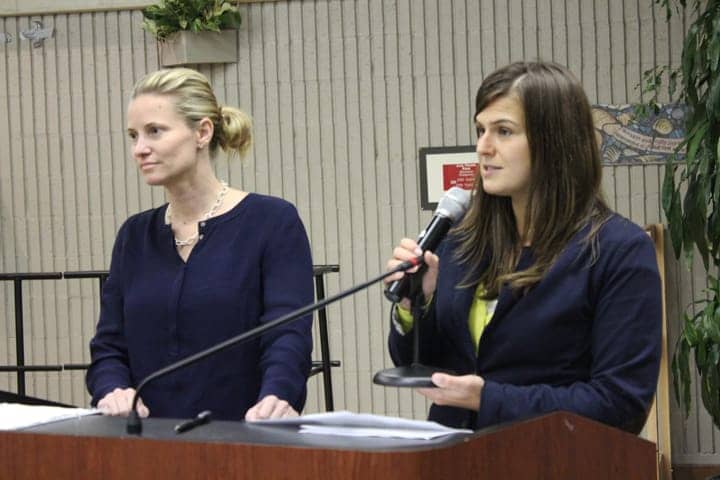
They further outlined Latham & Watkins’s intentions and hoped-for results for the dialogue with the community: to hear testimony, not only about our experiences attempting to do business or obtain contracts with SFUSD, instances of discriminatory treatment and who the decision-makers were at the district, but what we think should be done to redress these wrongs. “What do people want to see done? What would be a good result? What could be done differently by the district?” asked Andrea Hogan.
One after another, people came forward to reveal their frustrations. Marie Harrison related how, in her work as an activist focusing on social and environmental justice issues, including writing stories for this very paper, she learned about how SFUSD and other City agencies “would slash their bids” while expecting the same level of work to be performed by Black contractors. “MWBE goals were either not met or fraud [via abuse of joint ventures with non-Black contractors] was used to make them appear to have been met,” she said. MWBE stands for minority and women business enterprises – or contractors. In another example, she related how “token hires were made then laid off but kept on the books so that the rolls appeared to have met the goals.”
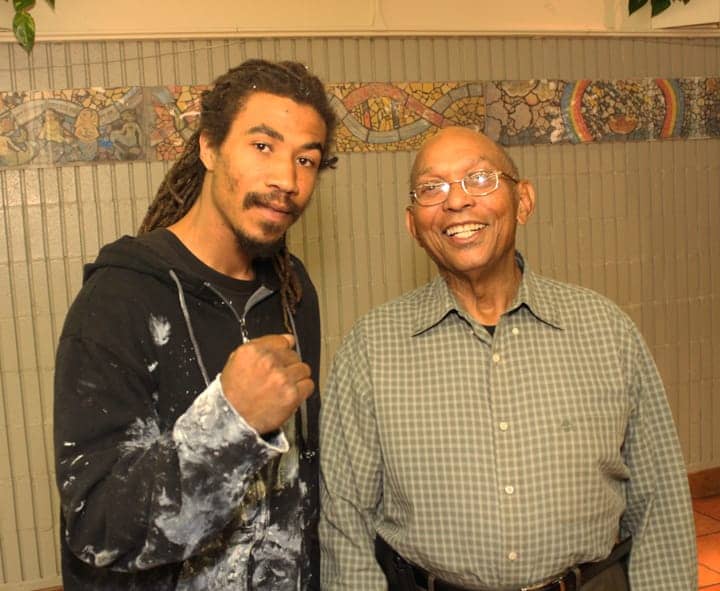
Jacquie Taliaferro, a longtime SF Bay View contributing writer, entertainment guru, business owner and mentor to young Blacks making their way in that industry, spoke as a concerned citizen. “My association with the SF Bay View newspaper caused me to be threatened with arrest” at the Museum of the African Diaspora gala event he was covering Oct. 12 after a Wells Fargo executive present recognized him. Jac had covered a rally at Wells Fargo’s Bayview branch protesting the blatant and inexcusable targeting of people of color via dicey subprime mortgage loans with exploitative terms and the resulting foreclosures that have devastated this community.
He explained, “This is an example of how media is compromised by pervasive threat of arrest or being silenced for illuminating the abuse of power and racism.” He then cited the building of Willie Brown Middle School without the use of Black contractors. “Where is Willie Brown in all this?” he asked.
Though the company has a long history of completed contracts and he was successful in obtaining and performing work on Juniper Homes and a project in the Sunset District recently, “I can’t remember the last time – if ever – we got a SFUSD contract.”
Veronica Shepard, co-founder of the Bayview Health and Wellness Center, also came forward. “I would love to see that no major development take place, or contracts be awarded, without the input of the community. We should not be pitted against each other for small pieces of the pie. We need to be a part of the development conversation and want the same equitable treatment.”
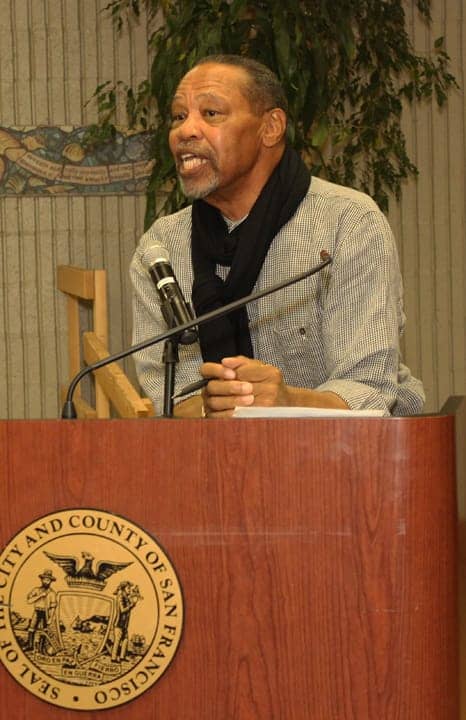
“It was then suggested that we were not qualified enough, despite all the past work we’d done, not only for the school district but for SFO and many other multimillion-dollar projects.” Mr. Stevens’ company has performed work all over the world, maintaining offices in San Francisco, Ho Chi Minh City, Vietnam, and Freetown, Sierra Leone.
“I would love to see that no major development take place, or contracts be awarded, without the input of the community. We should not be pitted against each other for small pieces of the pie. We need to be a part of the development conversation and want the same equitable treatment.”
The crowd then learned that from the post WWII years through the ‘70s, “there was not a high school east of Bayshore Boulevard for us to attend in our own neighborhoods, so [Blacks] were forced to attend school in the Mission.” Lance Burton, President of Planet Fillmore Communications, accomplished documentary filmmaker and photographer dispensed this bit of history. He went on to relate that the SFUSD’s Board of Education “appeared to actively discourage Black students from attending the City College of SF,” explaining that the program put in place recently was only done “due to a Black chancellor at CCSF approaching them and encouraging them” to build a bridge from high school to community college for Black students.
Oscar James, a retired trucking contractor and organizer for UNITI, a self-advocacy group, had this to say: “I did prior work in trucking for SFUSD … They tried to disqualify me first by saying I was not Black, as though you could not tell by looking at me.” This elicited laughter from the crowd. He then revealed that he had not had a contract with SFUSD in many years, not since he had joint ventured with another Black contractor, Ernie Lowe, who is now deceased. At the time, he recalled, “there were no other minorities getting contracts with SFUSD.”
He cited longstanding inequities in both the provision of education to Black students – his grandson attends George Washington Carver Elementary – and in contracting with Black businesses on the part of SFUSD.
“It was then suggested that we were not qualified enough, despite all the past work we’d done, not only for the school district but for SFO and many other multimillion-dollar projects.” Mr. Stevens’ company has performed work all over the world.
I took the opportunity at this meeting to offer a solution – one among many, including legal means – to counter the scourge of inequality and poverty that has beset our neighborhood and the Black community all over the country. In these pages, I’ve often underlined the importance of corralling and leveraging existing Black wealth to provide funding for entrepreneurship, to grow and maintain the solvency of existing businesses, to save failing businesses, to create jobs, and to re-invest in the community via education, training and other programs.
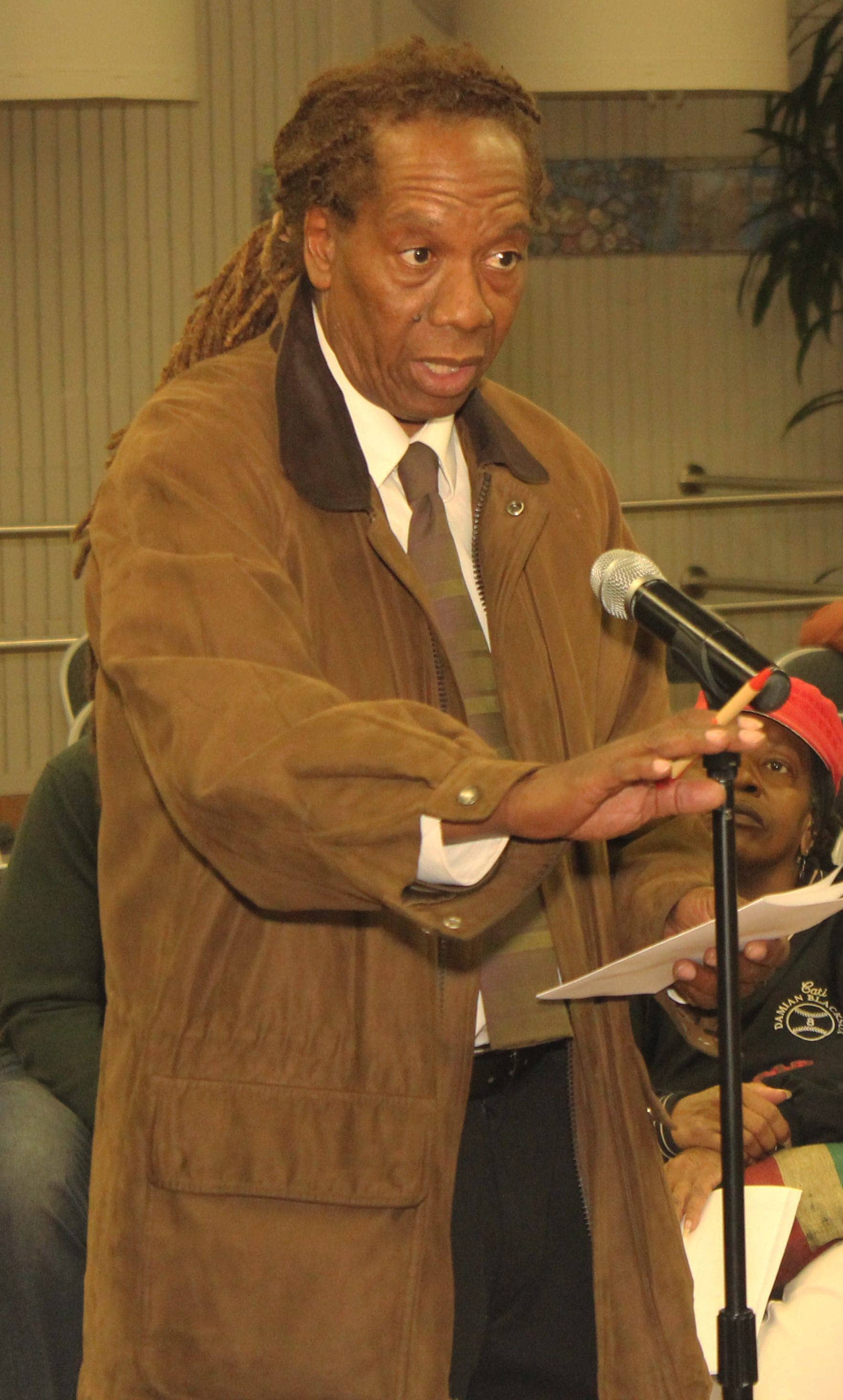
We would invest in programs to teach community members to advocate for themselves politically and through the legal system. Rising Sun Developers is seeking official designation and certification as a mutual benefit corporation in California. By doing this, we wish to underscore our commitment to truly gain and sustain advantage for our community and to meet the high standards for accountability and transparency required for certification, all while realizing a profit for our investors.
Rising Sun Developers intends to launch our initial public offering of shares early next year. Key to this process is the assistance of various community partners and advisors, including Bayview Community Legal, headed by Adrian Tirtanadi, Robert Woods of BHRLC, Fred Jordan of F.E. Jordan and Associates, Claude Carpenter, retired contractor and now part owner of the Dollar Store at Third and Palou, and Rev. Dr. James McCray, executive director of the Tabernacle Group.
We would invest in programs to teach community members to advocate for themselves politically and through the legal system.
We plan also to open a credit union, a separate entity to serve the needs of businesses and residents who have been ignored, shafted or treated unfairly by banks or government loan programs. Those of us who remain here do not have to resign ourselves to being chased out of the City for lack of access to capital, like so many others before us.
BHRLC and the attorneys need your testimony now
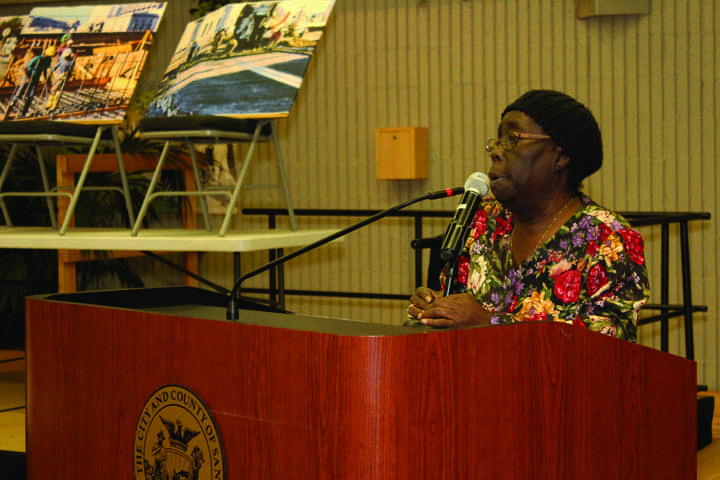
Are they now out of business or had to move out of the City, as so many have, due to corruption and unfair treatment? They need to hear your stories, see your documents, photos or videos, and talk to potential witnesses. As Dr. Jackson stated, and as I repeated, we must be the ones to determine our destiny, through every means possible.
For more information about BHRLC’s partnership with Latham & Watkins or to share your experiences with them, contact Robert Woods, BHRLC’s chairman of the board, at (415) 912-0550. For more information about Rising Sun Developers, call me at (415) 671-0789.
Bay View publisher Dr. Willie Ratcliff can be reached at publisher@sfbayview.com or (415) 671-0789.





